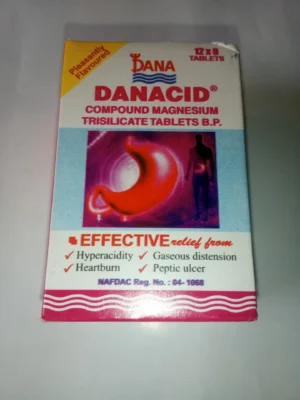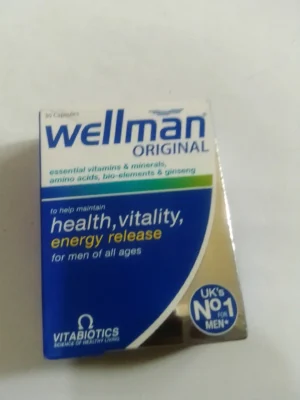A Guide to Preventive Health & Everyday Wellness

Please note: This article gives basic advice only. If you are experiencing an issue, please don’t self-diagnose. Talk to one of our pharmacists online — we’ll help you find out what’s really going on and what medicine or supplement is safest for you.
Contents
- Introduction — Why Prevention Is Better Than Cure
- Building a Strong Foundation for Wellness
- Eat Smart: The Simple Science of Nourishment
- Move Often: Exercise for Real Life
- Rest Deeply: Sleep as Medicine
- Stress Less: Protecting Your Mental Health
- Regular Checkups & Screenings: Your Early Warning System
- Everyday Health Challenges & Smart Solutions
- A. Fatigue and Low Energy
- B. Common Digestive Problems
- C. Cold, Flu, and Immune Protection
- D. Bone, Joint, and Muscle Support
- E. Heart Health and Blood Pressure Control
- Essential Vitamins and Supplements for Preventive Care
- Key Nutrients & Why They Matter
- 5 Excellent Multivitamin Supplements from Our Shelf
- When to Seek Professional Help
- Safe Use Tips
- Conclusion — Living Proactively, Not Reactively
1. Introduction — Why Prevention Is Better Than Cure
Many of us only visit a doctor or pharmacist after something goes wrong — when we’re already tired, in pain, or feeling off balance. But preventive health is about staying ahead of the problem: keeping your body and mind in good shape before illness sets in.
When you build small, healthy habits now, you can prevent serious conditions later — things like heart disease, diabetes, joint problems, or even certain infections.
This isn’t about being perfect. It’s about being aware, consistent, and kind to your future self.
2. Building a Strong Foundation for Wellness
Preventive health begins with everyday choices — what you eat, how you move, how you sleep, and how you handle stress. These simple factors can drastically reduce your risk of long-term illness.
Eat Smart: The Simple Science of Nourishment
Think of food as fuel and protection, not just comfort. Every meal gives your body the building blocks to repair tissues, balance hormones, and strengthen your immune system.
Here’s how to eat smarter:
- Include more colorful fruits and vegetables — they’re packed with antioxidants that fight aging and disease.
- Choose lean proteins like fish, chicken, eggs, beans, and nuts.
- Favor whole grains over refined ones — oats, millet, brown rice.
- Stay hydrated; water keeps every system working smoothly.
- Cut down on sugary drinks, alcohol, and fried foods.
If your diet is inconsistent or limited (which happens to most people), a daily multivitamin can help cover nutrient gaps — we’ll list some great options later.
Move Often: Exercise for Real Life
You don’t need a gym membership to stay active. Regular movement strengthens your heart, supports healthy weight, improves sleep, and even boosts mood.
Start where you are:
- 20–30 minutes of brisk walking, dancing, or cycling most days.
- Add gentle stretching or yoga for flexibility.
- If your work keeps you seated, take short breaks every hour — even small movements count.
Consistency is more important than intensity. A little activity, done regularly, can transform your long-term health.
Rest Deeply: Sleep as Medicine
Many people underestimate the power of sleep. When you sleep well, your body repairs itself — your brain clears waste, hormones balance, and your immune system strengthens.
To improve sleep quality:
- Keep a regular bedtime schedule.
- Avoid caffeine and heavy meals late at night.
- Reduce screen time before bed — blue light confuses your body clock.
- Try light stretching or deep breathing to unwind.
If you struggle with sleeplessness despite these steps, our pharmacists can suggest safe sleep-support options.
Stress Less: Protecting Your Mental Health
Stress affects more than your mind — it can raise blood pressure, weaken immunity, and cause stomach or skin problems. Learning to manage stress is preventive medicine in itself.
Practical stress relievers:
- Journaling or gratitude writing.
- Walking outdoors.
- Listening to calm music or guided meditation.
- Talking with loved ones or a counselor.
If anxiety or low mood persist, it’s okay to ask for help. Mental health is part of physical health.
Regular Checkups & Screenings: Your Early Warning System
Catching problems early often makes them easier — and cheaper — to treat.
Basic preventive checks include:
- Blood pressure and blood sugar tests.
- Cholesterol levels.
- Weight and body mass index (BMI).
- For women: cervical screening and breast exams.
- For men: prostate and testicular checks.
- Dental and eye checkups annually.
A quick visit to your doctor or pharmacist once or twice a year can reveal things you can fix early — long before they become serious.
3. Everyday Health Challenges & Smart Solutions
Even when you’re doing your best, common issues like fatigue or digestive discomfort can pop up. Here’s how to handle them safely — and when medicines or supplements can help.
A. Fatigue and Low Energy
Feeling constantly tired doesn’t always mean you’re lazy — it could signal nutrient deficiencies (especially iron, vitamin B-complex, or magnesium) or poor sleep.
What helps:
- Regular meals with iron-rich foods (leafy greens, eggs, meat, beans).
- Hydration — even mild dehydration causes fatigue.
- Iron or B-vitamin supplements for low energy days.
Best options from our shelf:
🍞 B. Common Digestive Problems
Indigestion, bloating, or constipation are often caused by fast eating, low fiber, or stress.
For mild symptoms, lifestyle changes and simple remedies usually work.
What helps:
- Eat smaller, slower meals.
- Drink water between meals.
- Add fiber-rich foods (vegetables, oats, papaya).
- Use safe antacids or mild laxatives when needed.
Picks for digestive relief:
- DANACID Tablet (Magnesium Trisilicate) — ₦20 — Soothes heartburn fast
- GECROL Antacid Suspension 200 mL — ₦1,500 — For acid reflux
- ACTILAX (Lactulose Syrup) — ₦1,200 — Gentle relief for constipation
- ULTRACOAL Activated Charcoal Capsules — ₦700 — Reduces bloating and gas
- OMESHAL 20 mg (Omeprazole) — ₦1,000 — Controls acid production
C. Cold, Flu, and Immune Protection
When your immune system is weak, you get sick more easily. Strengthening it means eating well, resting enough, and using supplements that boost defense.
What helps:
- Eat citrus fruits, leafy greens, garlic, and ginger.
- Stay hydrated and rest during recovery.
- Use vitamins and immune-boosters during cold season.
Helpful medicines and supplements:
D. Bone, Joint, and Muscle Support
As we age, or after periods of low activity, bones and joints need extra care.
Calcium, Vitamin D, and Omega-3 fats help strengthen them naturally.
What helps:
- Daily movement and stretching.
- Good posture and enough water.
- Calcium + Vitamin D supplements.
- Omega-3 or Cod Liver Oil for joints.
Top pharmacist-approved choices:
E. Heart Health and Blood Pressure Control
Your heart works tirelessly every second. Protecting it means managing blood pressure, cholesterol, and stress.
What helps:
- Eat more vegetables, beans, and grilled fish.
- Limit salt and saturated fats.
- Stay active and manage stress.
- Take supplements that support circulation and cholesterol balance.
Recommended items:
4. Essential Vitamins and Supplements for Preventive Care
Supplements are not replacements for food, but they strengthen your body’s foundation — especially when diet, stress, or environment make it hard to get enough nutrients.
Key nutrients to focus on:
- Vitamin C — Boosts immunity and skin repair.
- Vitamin D3 — Strengthens bones and immunity.
- Vitamin B-Complex — Keeps nerves and energy healthy.
- Calcium + Magnesium — Maintains bones, teeth, and muscles.
- Zinc — Aids wound healing and immunity.
- Iron + Folic Acid — Supports blood health.
- Omega-3 — Protects heart and brain function.
5 Excellent Multivitamin Supplements with Most of These Nutrients:
5. When to Seek Professional Help
Preventive care doesn’t replace medical attention. See a doctor if you experience:
- Persistent fever or fatigue
- Sudden weight loss or swelling
- Chest pain, fainting, or severe headache
- Shortness of breath
- Blood in stool or urine
Early action can save you from long-term damage.
6. Safe Use Tips
- Always read medicine labels — many pain or cold drugs overlap ingredients.
- Take supplements with meals unless advised otherwise.
- Don’t double up on similar multivitamins.
- Separate antacids from other meds by 2–3 hours.
- Pregnant, breastfeeding, or on long-term medication? Ask our pharmacists before taking anything new.
7. Conclusion — Living Proactively, Not Reactively
Good health isn’t luck — it’s a daily choice. You don’t need perfection or expensive regimens — just steady habits and the right support.
Start small: eat better, move more, rest well, and supplement smartly.
And whenever you’re unsure what’s best for your body, remember — our pharmacists are just a message away.
Your body is your lifelong companion — treat it with the care it deserves
You may also like
- A Practical Guide to Weight Management, Weight Loss, and Nutrition
- A Guide to Preventive Health & Everyday Wellness
- Women’s Health, Made Simple: A Simple Guide for Healthy Living
- Men’s Health, Made Simple: A Guide to Feeling and Living Better
- A Simple Guide to a Healthy Pregnancy: What Every Expecting Mother Should Know












